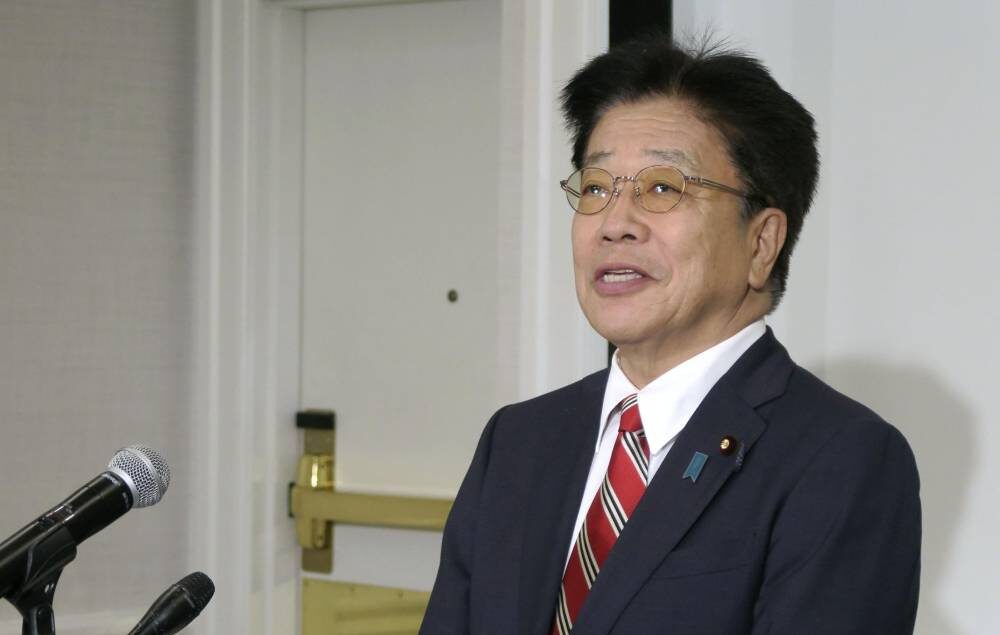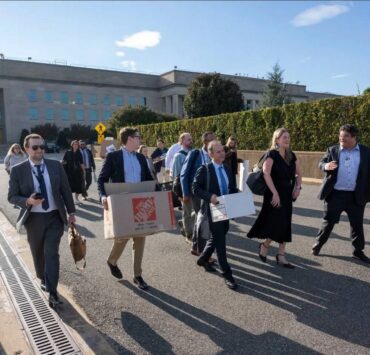US to Japan: Stop energy imports from Russia

The United States expects Japan to stop importing Russian energy resources, Treasury Secretary Scott Bessent said Wednesday, as President Donald Trump steps up calls on Washington’s allies to do more to erode the war chest Moscow is using to fund its invasion of Ukraine.
Bessent said he conveyed to Japanese Finance Minister Katsunobu Kato the Trump administration’s hope that Japan, which still imports Russian liquefied natural gas (LNG), should no longer buy its fossil fuel exports.
Bessent’s social media post following a meeting with Kato in Washington suggests that the issue could be on the agenda when Trump is expected to travel to Tokyo in late this month.
Third largest supplier
As part of efforts to slash Russia’s earnings, the European Commission aims to phase out LNG purchases from Russia by the end of 2026.
Russia was Japan’s third-largest LNG supplier in 2023, accounting for 9.3 percent of total imports, following Australia and Malaysia, according to Japanese government data.
Japan receives LNG supplies from the Sakhalin-2 oil and natural gas development project in Russia’s Far East, in which Mitsui & Co. and Mitsubishi Corp. are participants.
Bessent told a group of reporters that “we think any purchases of Russian energy should be substituted, and that anyone who purchases Russian energy is subsidizing the attack on the Ukrainian people.”
Bessent wrote on X that he and Kato also discussed other “important issues pertaining to the US-Japan economic relationship,” including the Asian country’s commitment to increasing investment in American strategic sectors through a recent bilateral trade deal.
His face-to-face encounter with Kato took place on the sidelines of this year’s autumn meetings of the International Monetary Fund and the World Bank.
The finance chiefs of the Group of Seven (G7) countries on Wednesday also discussed how to more effectively restrict Russia’s oil exports in an effort to end its war against Ukraine, as well as China’s new export controls on rare earth minerals.
Following the two meetings, Kato told reporters that he expressed “strong concern” over the Chinese restrictions and underscored the importance of the G7 uniting to respond to Beijing’s latest move.
At the same time, Kato said he cautioned during the G7 meeting that “if our response were to trigger a chain of retaliatory actions, it could adversely affect the global economy and financial markets.”
Asked whether Bessent urged Japan to stop buying LNG from Russia, Kato said he cannot reveal comments by his G7 counterparts.
“Japan will work in coordination with G7 countries toward the realization of a just peace in Ukraine,” he said.
After an online meeting in early October, the G7 finance ministers released a joint statement saying they agreed that “now is the time to maximize pressure on Russia’s oil exports, a major source of their revenue.”
Higher tariffs
The United States has been urging other G7 members to impose higher tariffs on countries importing Russian oil, particularly China and India.
On Wednesday, Trump said Indian Prime Minister Narendra Modi has assured him that his country will no longer buy oil from Russia.
“That’s a big stop. Now I got to get China to do the same thing,” Trump said during an event at the White House.
Bessent told a news conference ahead of the G7 meeting that the Trump administration is ready to impose a “Russian oil tariff or Ukrainian victory tariff” on Chinese imports and said Washington’s European allies need to follow suit.
Noting that China buys 60 percent of Russian energy, Bessent asked, “So, who is fueling the Russian war machine?”

















